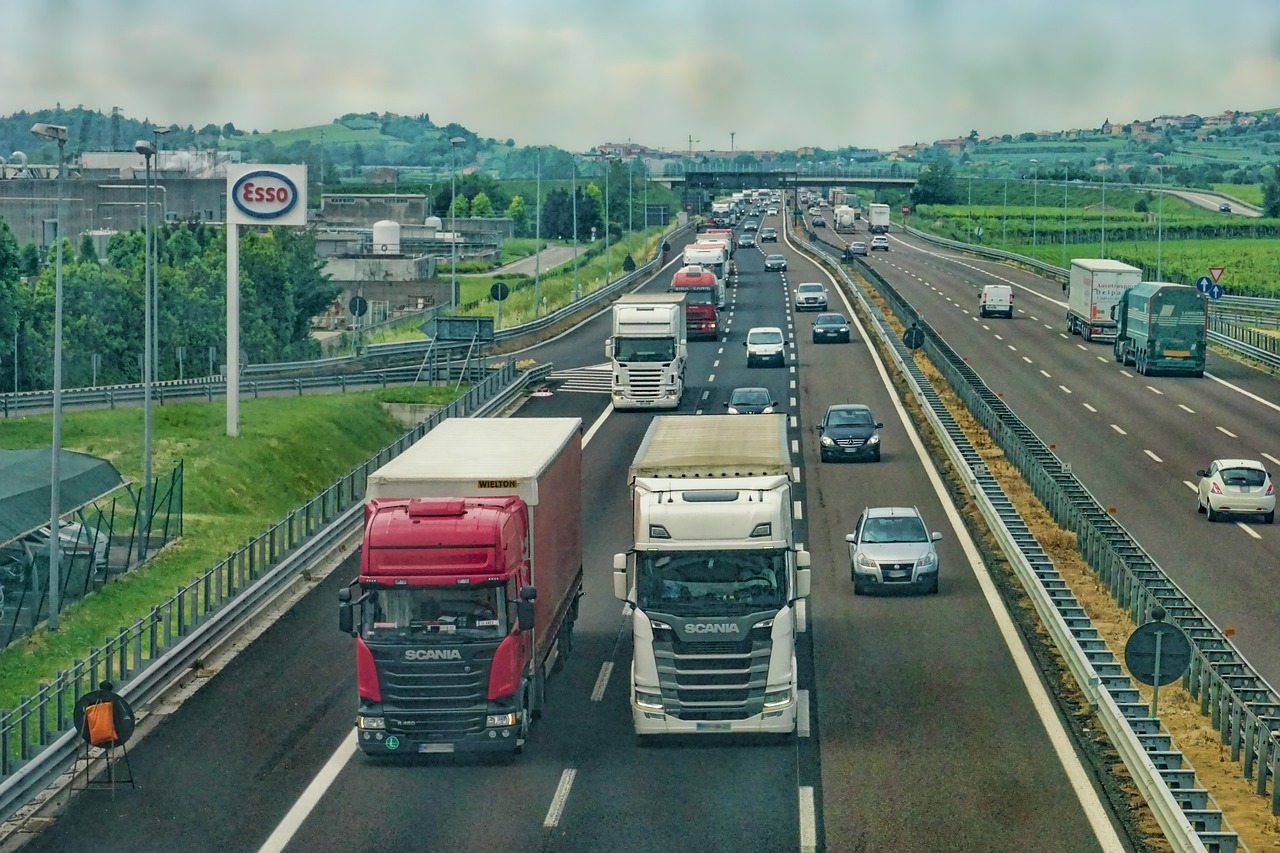Application of the Internet of Things in the Efficient Management of Commercial Vehicle Fleets
Managing a fleet of vehicles is one of the most complex, yet critical aspects of many businesses. Whether we're talking about carriers, courier companies, or enterprises involved in trade and distribution, efficient transportation and logistics are becoming increasingly important for business success. Achieving efficiency in this area, however, requires increasingly advanced tools. This is where the Internet of Things (IoT) comes in, a technology that revolutionizes not only our homes and cities but also the way we conduct business.
In the age of pervasive digitization and increasingly advanced technologies, companies must be flexible and open to innovation. Thanks to IoT, fleet management is no longer limited to simply monitoring vehicle locations or controlling drivers' working hours. It is now possible to track all sorts of machine parameters, analyze fuel consumption, and even predict vehicle breakdowns based on collected data. This approach not only increases operational efficiency but also affects customer satisfaction and the company's ability to quickly adapt to changing market conditions.
The concept of the Internet of Things is not new, but its role in fleet management is gaining importance as the technology becomes more popular in various sectors. In this article, we will delve into the practical applications of IoT in fleet management, examine available tools and their functionalities, and also consider the future and directions of development of this fascinating technology.
Changes in Fleet Management Thanks to IoT
Fuel and Energy Consumption Monitoring
If you've ever managed a fleet of vehicles, you know how crucial efficient fuel management is. Fuel consumption is one of the main operational costs, and controlling its use can lead to significant savings. In this context, IoT becomes an invaluable tool. Sensors mounted in vehicles can not only monitor the amount of fuel burned but also analyze drivers' driving styles, which directly affect fuel consumption. By analyzing this data, corrections can be made, translating into real savings.
Route and Location Management
Route optimization is another aspect where IoT proves its worth. Advanced navigation systems based on real-time data can dynamically guide drivers on the most efficient routes, avoiding traffic jams, accidents, or roadwork. Additionally, fleet managers can easily track the location of each vehicle, significantly facilitating logistics management and enabling faster response to unforeseen events.
Vehicle Safety and Monitoring
Safety is one of the priorities in fleet management. Here, too, IoT has much to offer. Monitoring systems can track not only speed and driver behavior but also the technical condition of the vehicles. Advanced sensors can detect upcoming failures and other issues, allowing for their early detection and repair before they pose a greater risk.
Data Integration and Real-Time Analysis
Equally important, all these diverse streams of data can be integrated and analyzed in a single central system. This opens the way for advanced analyses and forecasts that can lead to further optimization and efficiency. The ability to analyze data in real-time not only simplifies ongoing management but also helps in making strategic decisions regarding future development and investment.
From this brief overview, it's clear that IoT has a very wide application in fleet management and offers various possibilities for improving operational efficiency. From simple fuel consumption monitoring to route optimization to advanced data analysis systems - the possibilities are almost limitless. In the next part of the article, we will look at tools that can assist in the practical application of these technologies.
Best IoT Tools for Fleet Management
Geotab
One of the leaders in IoT-based fleet management is Geotab. They offer solutions for vehicle monitoring, fuel management, safety, and other key aspects. Primarily, Geotab enables real-time data collection and analysis, providing a complete picture of road situations and allowing for quick responses to any events. Its customization and integration capabilities make it the ideal choice for companies looking to optimize their fleet management comprehensively.
Samsara
Samsara is another tool worth considering. It's a platform for resource and operations management that offers numerous features ideal for fleet management. With real-time monitoring capabilities, driver behavior analyses, and even cargo temperature monitoring, Samsara is an excellent choice for businesses of various sizes and operational profiles.
Verizon Connect
This fleet management system offers comprehensive solutions for businesses across various industries. Verizon Connect provides vehicle monitoring, fuel analytics, route management, and much more. It's a proven choice for companies looking for a reliable platform for managing their fleet.
https://www.verizonconnect.com/
Key Benefits and Challenges
IoT technology has become an integral part of modern fleet management, bringing numerous benefits but also presenting some challenges to businesses. The first and most significant benefit is increased operational efficiency. Through fuel monitoring, route optimization, and advanced data analytics, companies can significantly lower costs and improve competitiveness.
The second major benefit is enhanced safety. Advanced monitoring systems and data analysis allow for faster detection and mitigation of potential hazards, for both drivers and cargo.
The third aspect is flexibility and the ability to quickly adapt to changing conditions. In a business environment where every minute and every liter of fuel counts, the capability for swift reaction to unforeseen events is invaluable.
As IoT technology continues to evolve, so too will its applications in fleet management. We can expect even more advanced data analytics tools, increasing integration of different systems, and automation of many processes. The future looks very promising, and companies that invest in these technologies today will have a significant competitive edge in the coming years.




